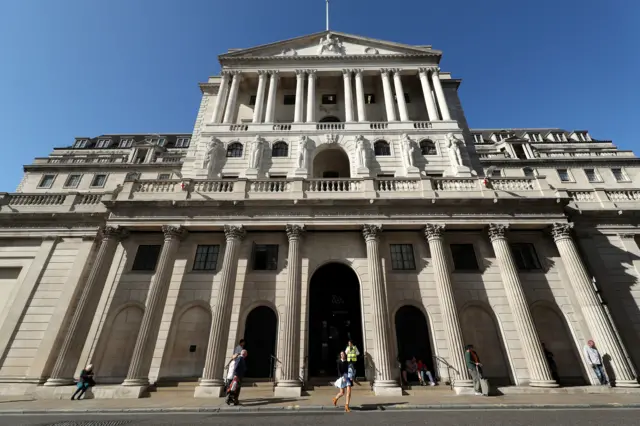Why did the Bank of England intervene?published at 05:20 BST 29 September 2022
 Image source, PA Media
Image source, PA MediaThe tax cuts in Friday's mini-budget - and the borrowing that will fund them - shook the confidence of the markets in the British economy.
That led to a significant fall in the value of UK government bonds, a type of investment where you loan money to the government in return for a rate of interest.
Pension funds hold a lot of government bonds because they are normally a very stable investment, but the fall in their value led to concerns the funds would have to begin selling assets - such as bonds and stock markets shares - to pay their creditors.
If that happened, it could have sparked a vicious cycle in which the sale of bonds pushes the price further down and triggers more sell-offs.
The Bank of England's intervention was a pledge to buy £65bn worth of bonds over the next 13 days, propping up the price of bonds and preventing that cycle getting under way.